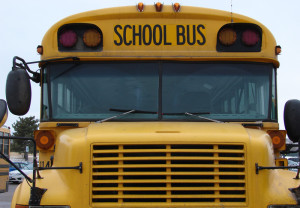Two Colorado school districts took steps this week to equalize funding between traditional public schools and their public charter school counterparts.
Jefferson County Public School District and the Thompson School District both agreed to shift some of the districts’ money to the charter schools, and in the case of Thompson, dipped into district reserves to provide additional funding for charter students.

The statewide disparity among charter schools and the traditional district-run schools amounts to millions of dollars each year because most districts do not share revenue from mill levy overrides, the technical term for voter-approved property tax increases, equally with their charter schools.
This problem is exacerbated by the fact that charter schools must use revenue that otherwise would go toward educating students to pay for capital improvements and mortgage payments.
According to the Colorado League of Charter Schools, Colorado charter schools spend $606 per student from designated per-pupil operating revenue on facilities costs because they are not included in the additional revenue streams.
In Thompson, $450,000 was set aside for the district’s two charter schools, New Vision and Loveland Classical. The increase works out to about $400 per student. Of the additional money, $191,000 will go to New Vision and $260,000 to Loveland Classical.
The decision did not please everyone. Loveland parent Shae Slavens said the money could be better spent elsewhere.
“That is money that could be paying for iPads and Chromebooks for my son’s school,” Slaven’s said. “Our (Parent Teacher Organization) had to pull from our funds in order to buy just a handful of Chromebooks. What basis did you guys decide to justify that decision to spend that money on schools that don’t necessarily need it?”
Slavens doesn’t contribute to the mill levy dollars that do benefit the students of Thompson because she lives in Greeley, she said. She enrolls her son in Thompson School District under Colorado’s open-enrollment law.
Although the board passed the budget unanimously, member Lori Hvizda-Ward clarified that she would line-item veto the charter school funding piece if she had the option.
“It is my understanding that this is a one-time expense,” she said. “It is not necessarily ongoing. We have to reconsider it each year. The money is coming out of reserves and adding to our deficit. No budget cuts were made to do this. The methodology used was based on the mill levy override, but it is not coming from the mill levy funds. I personally feel that we did this in a manner that was a little quick for my taste.”
Ward stopped short of promising more oversight as a result of the added funding, but said it could happen.
“In doing this we’re stepping out of original agreements with the charter schools,” she said. “It may or may not open up down the road other (strings attached) issues where this board may move to be more involved in some of the charter schools.”
Bryce Carlson, despite jeers from the audience, said he was pleased that the district was making an effort to fund all students fairly.
“It is a really positive step for our district to add this funding,” he said. “It may be one-time funding toward funding all our kids equitably, but I’m glad to see it remained in the budget.”
In JeffCo, an additional $2.5 million was set aside to fund the district’s 16 charter schools. The new money is in addition to $5.6 million that was budgeted in 2014-15 after the board learned it would take about $7.4 million to fully equalize mill levy override funding for the district’s charters.
However, the budget was not unanimous in in JeffCo, with a 3-2 split. Jill Fellman and Lesley Dahlkemper voted against the budget.
“I value all children equally,” Fellman said. “And I am pleased that we are on a path to do so financially with charter schools. However, I am still concerned about their accountability to the district. I think this board has a duty to learn more about these details before allocating more money.”
Board president Ken Witt has continually said he is determined that every child will be supported equitably while keeping in mind differences in particular needs.
“We must ensure that our students are worth the same education funding regardless of which public school they choose to attend,” Witt said.


